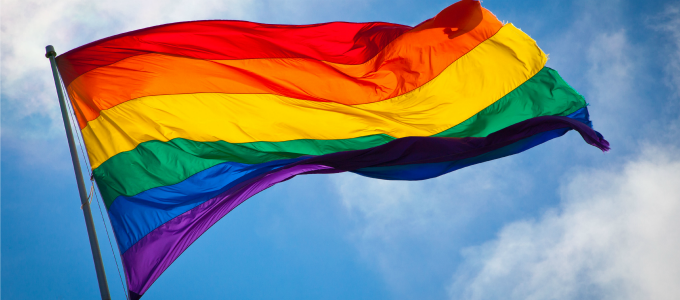
"Thanks to the Supreme Court, not only can there be spiritual healing but also a righting of wrongs, a correction of systemic inequity and a lot of unnecessary financial burdens can be lifted," writes editor Kellye Whitney.
by Kellye Whitney
June 26, 2015
Two years to the date of the Supreme Court's DOMA decision that ruled the federal ban on same-sex marriage was unconstitutional, SCOTUS follows up by ruling against state bans, too. (Photo courtesy of Wikimedia Commons)
Today is an important, some might even say historic, day. I just left one of my direct reports literally dancing in the aisle by her desk over the Supreme Court’s 5-4 ruling that same-sex marriage is now legal nationwide.
In the face of her enthusiasm, I had to examine my own reaction to the news. I wasn’t terribly excited. Not because I don’t support same-sex marriage; I do. But I confess I hadn’t thought in any great detail about what it would mean or has meant to LGBT people to be denied the right to legally celebrate their union and love, to be able to count on and enjoy all of the benefits and legalities that hetero couples can. Thanks to the Supreme Court, not only can there be spiritual healing but also a righting of wrongs, a correction of systemic inequity and a lot of unnecessary financial burdens can be lifted.
Dissenters say the Supreme Court should not have the right to redefine the institution of marriage. But I query statements like that. To redefine something means it already had a definition. To balk at changing or expanding that definition is essentially a protest against change, a desire to maintain the status quo. That is the problem with most discussions around diversity and inclusion. It comes down to one group’s desire to leave things as they are — usually in a state that only benefits them — and another group’s insistence that inequities be made fair.
Dissenters like presidential candidate Scott Walker say it should be up to the states to make this kind of decision: “We will need a conservative president who will appoint men and women to the Court who will faithfully interpret the Constitution and laws of our land without injecting their own political agendas. As a result of this decision, the only alternative left for the American people is to support an amendment to the U.S. Constitution to reaffirm the ability of the states to continue to define marriage.”
There’s a lot I find troubling in his statement, and I don’t have enough life left to argue over who has the right to enforce a political agenda or the dubious benefits of conservatism. But if you’re going to bring in the Constitution as the be all end all of everything, I’m grateful our Supreme Court understands that even a storied, fabulous document like the Constitution must be open to some interpretation. Otherwise minorities would be in serious, perpetual trouble.
I mean, it was written a very long time ago, before certain ideas or behaviors could even be spoken aloud in this country. To hold on to it so tightly that you spiritually and mentally choke the life out of specific groups who live and work in this country is criminal. Societies must grow. They must change and evolve or else they die out. Period.
Philosophical considerations notwithstanding, employers will have many questions in light of the ruling. For instance, how does it affect benefits, retirement plans and leave under the Family and Medical Leave Act? How does HR have to operate going forward now that the word spouse means something more than it did previously? Property and information rights will change, and what about enforcement? This is a hot topic, a sensitive one that some people will protest despite the ruling. How will companies deal with backlash, intolerance, refusal to act according to the law and even cruelty or violence?
It’s a lot to take in. But I prefer to do what my direct report did — mentally, if not physically — and celebrate this change. We should be proud that we live in a progressive society that believes all of its citizens’ rights are worthy of consideration, and where needed, of change.
So to the LGBT community, I say congratulations. Go forth, and marry. Not because I said so, but because you can; it’s legal.



